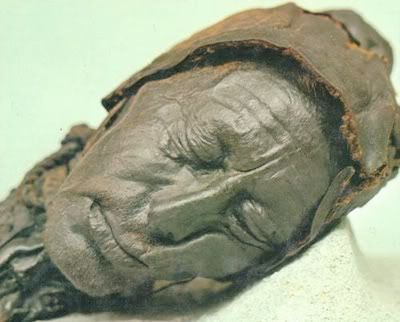
My love is a fleshly but not a carnal one.
I spend a lot of time thinking about mummies, more time than your average cusp-of-pubescence boy, whose depraved fixation on all things gruesome is soon enough replaced by far more gratifying perversions. I don’t think of myself as particularly morbid. Although, because I didn’t have access to cable during those most formative years of childhood, my favorite channel growing up was the one that aired live autopsies.My devotion to preserved human corpses in not an indiscriminate one: I’m not really into your run-of-the-mill Hotep types. Egyptian royalty doesn’t interest me much. Those mummies are a dime a dozen.
Anyway, I’ve formed something of a philosophy (and one Tom Waits-styled love ballad) from this otherwise unaired contemplation. But more on all of that later: first, a few words on archaeology in general. I’ve got some serious pet peeves (big barking ones) when it comes to the subject. Whenever I am cornered into telling someone that I fancy myself something of an archaeology student, I often get the response that they too “looooved dinosaurs” when they were a youngster. More than anything else, I am tired of this fundamental confusion of people with fossils. But all my internal eye-rolling aside, I also share this confusion. The distinction between man and mineral seems to be set in something softer than stone.
Archaeology is the study of material culture. So where do human remains fit into all of this? I love the poetry of archaeology. Every artifact is a metaphor. But how can these allegories make sense of a body/anybody? The body (human, animal, virtual, or otherwise… all of these categories overlap, after all) is partially biological, but it is also something that is actively (and culturally) produced and imagined. It is a site of/for spectacular involvement.
Mummies seem to reflect the sort of frozen-in-time-ness that is so appealing to many people: grisly lipless nostalgia. These time-travelers are non-threatening: they are partial and peripheral. In some sense, history has already been decided. Real people, whether alive or dead, do not seem to have much of an impact on it. However, I find myself nevertheless inclined toward romantic musing. The living and the lived must have a place in all of this. I cannot help but entertain some sort of fearful optimism.
After all, isn’t that what love is?

